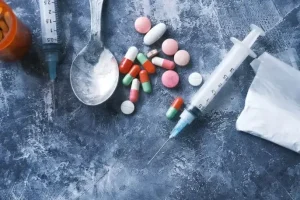Celebrating someone’s sobriety can take many forms, depending on the relationship with the individual and where they are in their recovery journey. While unfortunate, relapse is a possibility for anyone attempting a sober life. Remember to set achievable goals that can help you build confidence in your ability to overcome your addiction. Feelings of failure and shame can act as triggers for substance use.
- Sobriety offers the chance to create a legacy that reflects resilience, compassion and growth, motivating individuals to maintain sobriety as they find purpose in helping others on the same journey.
- The more tools you have for identifying triggers, coping with stress, and managing your new sober life, the easier you’ll prevent relapse.
- Without alcohol, I felt less anxious and more in control of my emotions.
- These environmental factors often interplay with the physical, psychological, and social challenges, creating a complex web of obstacles to navigate.
- It was at this point I started to notice how much better I felt without it.
What is Sobriety? Defining & Navigating Lifelong Commitment
It is important to remember that recovery is a journey and that it is a journey. When you stay sober, you can handle emotions more proficiently and develop healthier coping strategies, leading to a more balanced and emotionally stable life. Alcohol and drug abuse can wreak havoc on your ability to manage emotions effectively, leading to mental health issues.
Can Enjoy a Healthy Lifestyle
I used to think my deep, drunken conversations connected me to people but often it was me just waffling on, not absorbing what whoever was sat opposite me was actually saying. Now I’m definitely more attentive and conversations are more interesting. I think I am able to connect more to the discussion and the person I’m talking to.
Is Sobriety More Than Just Not Drinking?
Addiction can profoundly impact relationships with family and friends in various ways. The challenges posed by addiction can strain communication, trust, and emotional connections, often leading to significant disruptions in these relationships. Those who stood by you and remain loyal to you, even when you were at your worst, are perhaps the most important people to keep in your life. If you need another reason to get sober, think about what you owe to them and about all of the hard work they did to help you to get to this point.
What works for one person may not work for another, so persistence and an https://yourhealthmagazine.net/article/addiction/sober-houses-rules-that-you-should-follow/ open mind are crucial. While the adjustment period can be challenging, there are several strategies that can help combat boredom and find new sources of enjoyment in sobriety. Learn more about the science of boredom in sobriety and how to cope in this episode. Recognizing that motivation will ebb and flow is important for developing realistic expectations and strategies.
What Are the Big Milestones in Sobriety?
- When you’re sober, you’ll probably find that you stop gaining weight (and maybe even lose a few pounds) without really trying.
- Embracing a sober life with or without rehab is not only beneficial for your mental health but also your physical health.
- While the adjustment period can be challenging, there are several strategies that can help combat boredom and find new sources of enjoyment in sobriety.
- When you’re sober, you don’t have to worry about developing life-threatening complications from your habits.
- It necessitates hard work, determination, and a commitment to personal growth.
- Have you ever woken up unable to remember what happened the night before?
If you have tried and failed to achieve sobriety, you can maximize your chance of recovery by engaging with evidence-based treatment at Renaissance Recovery in Huntington Beach. From 2000 to 2014, overdose-related deaths have increased by 137% and opioid-related deaths have increased by 200%. In 2014, 47,055 people died of a drug overdose, which is one and a half times greater than the amount of people who died in car accidents. Studies have shown that regular users of marijuana are three-and-a-half times more likely to have any psychiatric diagnosis and nearly four times more likely to have a depressive disorder. Marijuana users are also more likely to live with schizophrenia, and experience paranoia and hallucinations. Drug use can lead to decreased inhibition and increased unprotected sexual activity, which, in turn, increases the risk of sexually transmitted infections (STIs).
Recovery allows you to get to know the real you and learn to love that person. You can take in every second, and not feel like your life is passing you by in a whirlwind of blurred memories. Being in the possession of illegal drugs or abusing legal drugs can lead to arrest and incarceration. Driving while under the influence can also lead to these consequences, as well as potential harm to others. Methamphetamine use can lead to depression, paranoia, hallucinations, and anxiety.
- Drinks add up fast – especially when you’re treating yourself to that ‘just one more’ cocktail.
- One of the more immediate benefits of getting sober is a surge in energy.
- Methamphetamine use can lead to depression, paranoia, hallucinations, and anxiety.
- Your sleep patterns may be altered and you may not think about eating healthy when you’re under the influence.
- Without alcohol to numb emotions, you can face and process feelings in a healthier way, leading to greater stability and fewer mood swings.
The possibilities are endless when you choose sobriety one day at a time. For many, recovery from addiction is a chance to pursue a meaningful life. Staying sober offers the stability and clarity needed to establish a sense of purpose, whether that’s through personal relationships, community involvement or pursuing long-term dreams. This sense of purpose often strengthens the resolve to stay sober, as people recognize the sober house value of the life they are building. Furthermore, a stable financial situation can enhance the quality of life and support healthy hobbies, education, or even career advancement.
You get to be present to help out with homework, attend their games and recitals or bond over old-fashioned ice cream on a hot summer day. You no longer have to carry the guilt and remorse of ignoring or yelling at them. From the first sip or hit, the chase begins whether you really want to get high or not. As ludicrous as it sounds, it’s actually easier to stay sober than it is to get sober. Feeling embarrassed is a common and understandable emotion for individuals who have struggled with addiction.
Sustained Recovery
By staying sober, you can naturally regulate your weight, feel more confident in your body, and enjoy a healthier lifestyle. Many people who misuse alcohol or drugs have trouble dealing with anger. If left unchecked, anger can have a negative impact on your health and your lasting sobriety. Now that you are sober, you may have discovered that some of your past relationships were not only unhealthy but downright toxic. It’s not just your drinking buddies and drug dealers who can get you into trouble—sometimes those who are closest to you can contribute to a relapse.
But I would only ever drink socially so when the first Covid lockdown hit in 2020 my relationship with alcohol went out the window. It was at this point I started to notice how much better I felt without it. For this reason, I tended to lean on alcohol as a way of making myself seem more appealing during certain social settings. During sixth form and my time at university, the amount you could drink was worn as a badge of honour. As a competitive person, I never wanted to be left behind, so binge drinking once or twice per week was the norm.
Since the 1940s, roughly 60 percent of Americans have said they drink occasionally, according to analysis by The New Consumer/Coefficient Capital, a statistic that has stayed consistent until today. But that stat is beginning to drift downward, with 26 percent of Americans polled saying they planned to drink less in 2025. Peer support groups, such as Alcoholics Anonymous (AA) or SMART Recovery, offer invaluable opportunities for individuals in recovery to connect with others who understand their struggles. These groups provide a non-judgmental space to share experiences, gain insights, and learn coping strategies. As the fog of early recovery lifts, individuals enter the middle stage, where the focus shifts from merely staying sober to rebuilding a fulfilling life.
Suddenly, I had extra cash for the things that genuinely made me happy, like trips, self-care splurges, or even just saving for something special. If you can stick within those, the harms of alcohol are relatively minor. Most people who stick within their limits will not experience significant harm,” he adds. This doesn’t have to mean cutting alcohol out entirely either – “I drink, so it the impact of alcohol doesn’t worry me enough to stop,” Professor Nutt says. There are two main ways ditching alcohol has benefitted my health. Without any weekend drinking sessions in my schedule, I noticed this impact subsided after a couple of weeks, which is par for the course according to Professor Nutt.
Embracing sobriety is a life-changing decision that offers numerous benefits across all aspects of your life. If you or someone you love is considering this path, Uplift Recovery is ready to support you. The idea of sobriety can feel boring or lame, and like it’s only an option for someone who’shit rock bottomand had to become sober because they had no other choice. Relationships between addicts and non-addicts tend to be shorter and less fulfilling than when neither partner is an addict.



.jpg)
